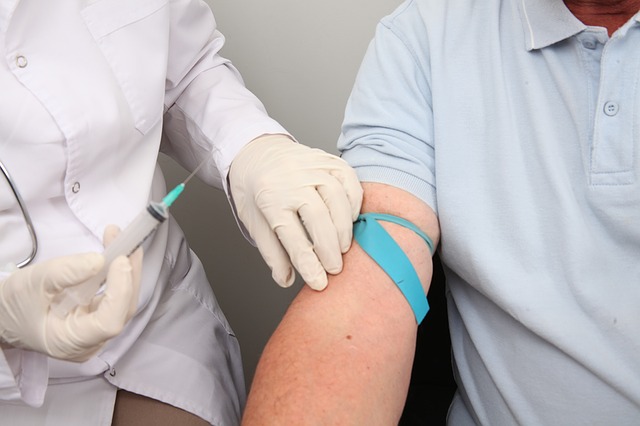An outbreak of meningitis has hit Los Angeles County in the past two months, with a disproportionate number of them gay men, and health experts are unsure why.
Twelve residents in LA County have contracted invasive meningococcal disease, seven of which have been identified as gay or bisexual men, reports Southern California Public Radio.
Dr. Jeffery Gunzenhauser, interim health officer for the County’s Department of Public Health, said, “In L.A. County there are an estimated 300,000 self-identified gay or bisexual men, in a population of more than 10 million.” He added,
Seven cases occurring among this group, during a two-month period, is much higher than expected.
Gunzenhauser suggested several explanations for the seeming susceptibility of gay and bisexual men to the disease. One of his theories is that some strains of the microorganism that causes meningitis are more contagious than others. When the strain gets into a community, particularly one where there might be some type of autoimmune disease, or one where there is plenty of regular social contact, the organism might be more likely to spread, the doctor said.
His other theory is that there are people who carry the disease, but are asymptomatic and are not at risk for meningitis. However, some people, though it’s not clear what percentage of the population this is, might be more vulnerable to catching the disease and showing serious symptoms.
Meningitis symptoms usually occur within five days. These include high fever, skin rash, stiff neck, severe headaches, low blood pressure, general muscle pains and sensitivity to bright lights. The disease can cause hearing loss, brain damage and at the most extreme, death. It is a fast-progressing disease, which is why immediate diagnosis and treatment is necessary.
Gunzenhauser said that LA County has not found any common ties among those who have recently contracted meningitis, despite thorough questioning on the whereabouts of the patients and a comparison of all the locations and possible connections.
Dr. Robert Bolan, medical director of the LA LGBT Center, theorizes that social factors could be behind the heightened susceptibility of gay and bisexual men to meningitis. “Anecdotally, some people think that gay men are more demonstrative towards one another than the general population – there’s more kissing, more deep kissing,” he said. “I don’t know whether that’s true or not.” Another prevailing thought that “gay and bisexual men are said to have more sexual partners than average heterosexual individuals,” could be another factor, something Bolan thinks might be true.
The sudden increase in meningitis cases is not new. In 2014, outbreaks of a particular strain of the disease were reported among gay and bisexual men in LA County, Chicago and New York City, according to the California Department of Public Health. Similar meningitis outbreaks have also been reported in Europe.
In 2014, the LA County outbreak involved 11 cases, six of whom were gay or bisexual men, County Public Health records show.
Following the 2014 incident, Bolan urged the Centers for Disease Control and Prevention to investigate why gay and bisexual men were at a greater risk of exposure to the meningitis compared to the general population. The CDC and the New York City Department of Public Health initiated a study of 800 people at two clinics in New York City as a response.
Bolan said the study should shed some light on important questions regarding meningitis and give insights on screening and prevention strategies.
Whatever the reason, health authorities are encouraging gay and bisexual men to get vaccinated. This includes those who have multiple partners, those who seek out partners via dating apps, those who do drugs or share cigarettes and marijuana.
The US Advisory Committee on Immunization Practices said that all HIV-infected patients receive routine doses of the meningococcal vaccine.
























